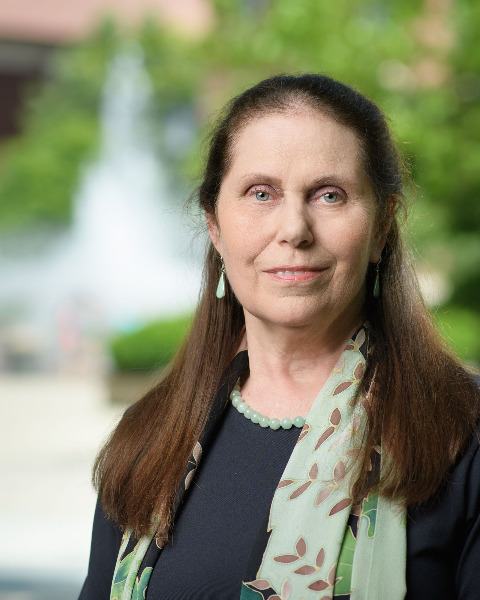Behavioral and Social Sciences
Alzheimer's Disease and Related Dementias in a Family Context
-

J Jill Suitor, PhD, FGSA (she/her/hers)
Distinguished Professor of Sociology
Sociology
Purdue University
West Lafayette, Indiana, United States -
MG
Megan Gilligan, PhD, FGSA (she/her/hers)
Associate Professor
University of Missouri
Columbia, Missouri, United States -

J Jill Suitor, PhD, FGSA (she/her/hers)
Distinguished Professor of Sociology
Sociology
Purdue University
West Lafayette, Indiana, United States -
MG
Megan Gilligan, PhD, FGSA (she/her/hers)
Associate Professor
University of Missouri
Columbia, Missouri, United States -

Tina Savla, PhD, FGSA (she/her/hers)
Professor
Center for Gerontology
Virginia Tech
Blacksburg, Virginia, United States -
JG
Joseph Gaugler, PhD, FGSA (he/him/his)
Professor and Robert L. Kane Endowed Chair in Long-Term Care and Aging
School of Public Health
University of Minnesota
Minneapolis, Minnesota, United States -

Meng Huo, PhD (she/her/hers)
Assistant Professor of Human Development
Department of Human Ecology
University of California, Davis
Davis, California, United States
Chair(s)
Co-Chair(s)
Individual Symposium Abstract First Author(s)
This symposium considers the ways in which the presence of Alzheimer’s Disease and Related Dementias (ADRD) shapes functional and affective relationships between family members, and raises questions about the future public health implications of ADRD family caregiving. In the first paper, Huo and Kim use dyadic data collected from husbands and wives in which one partner lives with mild-to-moderate cognitive AD to explore the role of relationship quality in caregiver stress. Next, Suitor and colleagues use mixed-methods data from the Within-Family Differences Study to examine how mothers’ cognitive impairment moderates the impact of maternal favoritism/disfavoritism on the psychological well-being of adult sons and daughters. Third, Gilligan, Suitor and Ogle investigate the role of adult children’s care provision in the association between parents’ cognitive impairment and adult sibling tension, also using mixed-methods data from the WFDS. Next, Savla and Roberto use mixed-methods data to explore how extended family caregivers manage their care responsibilities and how care arrangements impact the provision of future care for persons living with ADRD. Finally, Gaugler considers the public health ramifications of family caregiving, summarizing the scientific literature on estimating the future supply of family caregivers, and presenting a research agenda to address the potential family care gap. Taken together, this diverse set of papers highlights the complex ways in which the presence of ADRD shapes patterns of care, relationship quality, and well-being of members of later-life families.
This is a collaborative symposium between the Alzheimer's Disease and Related Dementias and Family Caregiving Interest Groups.
Learning Objectives:
- After attending this session, participants will gain a better understanding of the family dynamics experienced in the context of caring for a family member with Alzheimer’s disease and related dementias.
- After attending this session, participants will be knowledgeable about the programming and policy implications of familial care for older adults living with Alzheimer’s disease and related dementias.
Presentations:
-
10:30 AM - 12:00 PM ETMaternal Differential Treatment and Adult Children's Depressive Symptoms in the Face of Cognitive Impairment
Individual Symposium Abstract First Author: J Jill Suitor, PhD, FGSA (she/her/hers) – Purdue University
-
10:30 AM - 12:00 PM ETChanges in Adult Sibling Conflict and Older Parents' Cognitive Impairment: The Moderating Role of Care Provision
Individual Symposium Abstract First Author: Megan Gilligan, PhD, FGSA (she/her/hers) – University of Missouri
-
10:30 AM - 12:00 PM ETWho's Up Next? Extended Family Caregivers of Persons Living With Dementia: Current and Future Care
Individual Symposium Abstract First Author: Tina Savla, PhD, FGSA (she/her/hers) – Virginia Tech
-
10:30 AM - 12:00 PM ETAn Agenda for the Family Care Gap: Aligning Science, Family Experiences, and Public Health
Individual Symposium Abstract First Author: Joseph E. Gaugler, PhD, FGSA (he/him/his) – University of Minnesota
-
10:30 AM - 12:00 PM ETSupport Exchanges in Couples Coping With Early-Stage Alzheimer's Disease
Individual Symposium Abstract First Author: Meng Huo, PhD (she/her/hers) – University of California, Davis
